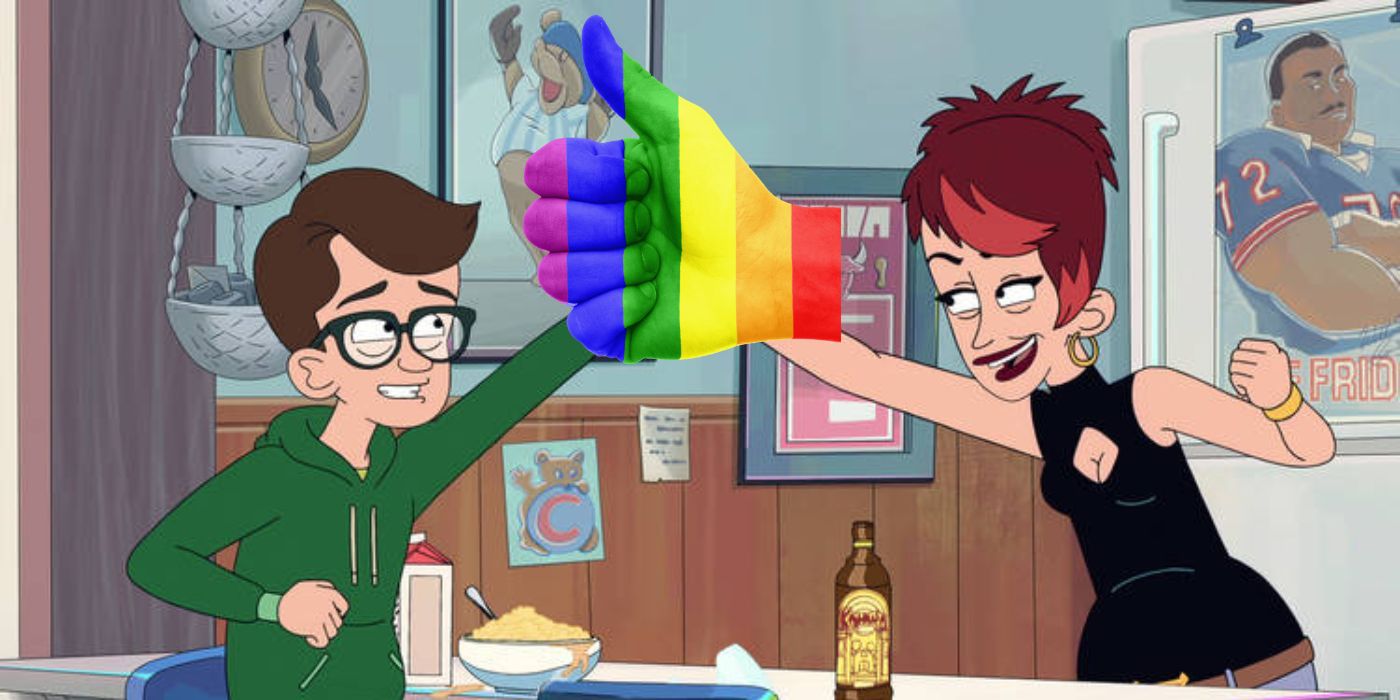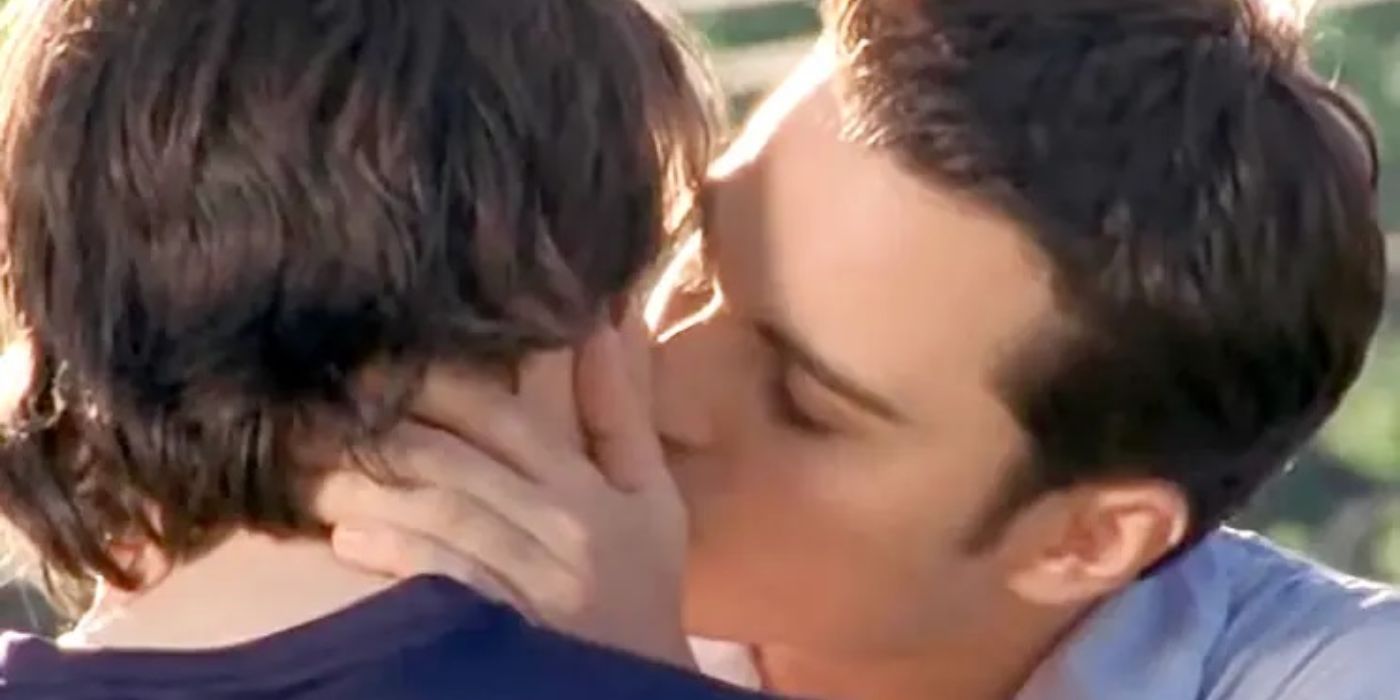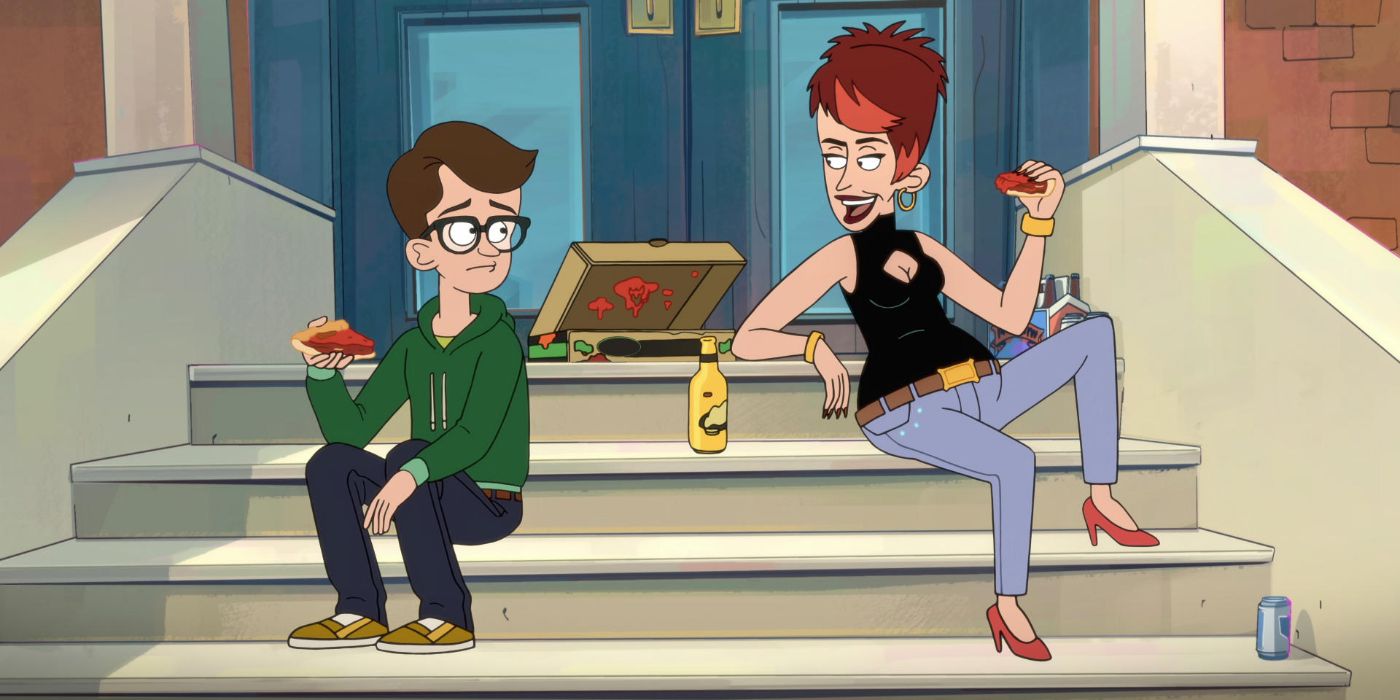The following contains spoilers for Chicago Party Aunt, now streaming on Netflix.
Chicago Party Aunt Season 2 has dropped on Netflix, and following the trend of the first season, the second is blazing a trail for LGBT+ representation. In Episode 3, Daniel begins a relationship with a pro baseball player, and though things start sweet, it quickly begins to veer toward stereotype country. At the last moment, however, Chicago Party Aunt turns the trope on its head, changing the status quo for closeted LGBT+ relationships on television.
In Season 2, while moving a sign into his titular party aunt's condo, Daniel meets a pro baseball player by the name of Jason, and soon the two begin an intimate relationship. Jason seems quite sure of himself and his sexuality, openly making passes at Daniel and progressing the relationship. It is then, however, that Daniel begins to notice a few signs that suggest Jason is in the closet, such as the latter not wanting to go out into public while they are together. Soon, Daniel confronts Jason with his concerns, and a stereotypical LGBT+ trope begins to play out.
Daniel Puts To Rest an Old LGBT+ Stereotype
The beats of this conversation have been played out since the days of Dawson's Creek. Two same-sex partners get into a relationship, and one of them is in the closet, in this case, Jason. Jason worries that his sexuality might define him in the public eye, and wishes to keep their relationship within the confines of their home, a trope seen in even the best gay Rom-Coms. Usually, this results in a saga of self-hatred for both parties, as they fight to hide their deeds, but Chicago Party Aunt takes a different approach. Daniel, instead of going along with this for the sake of stolen kisses, chooses to stand up for himself, setting his boundaries and turning the trope on its head.
Daniel refuses to keep their relationship in the closet. Though he does care a great deal for Jason, he will not allow himself to be a person's dirty secret, essentially making an effort to end the relationship on good terms. While at first this seems like the end of the relationship, soon Jason returns with a public proclamation of his love, leading to a much healthier, more open relationship. This is virtually never the case for LGBT+ romances, even in the best animated shows of 2022, with most narratives opting for the unrequited love or shameful secret angle.
Chicago Party Aunt Turns Stereotypes on Their Heads
This is not the only LGBT+ stereotype that Chicago Party Aunt turns on its head. Outside the entirety of Jason's character, which is already a character created against type being a queer pro baseball player, there is also his personal relationship with his sexuality. Jason has already been in several same-sex relationships by the time he meets Daniel. He is not "struggling" with his sexuality, nor is he "confused." He seems to be out on a social level, but not on a public level, a layer of nuance that further pushes against stereotypical LGBT+ representation.
Chicago Party Aunt Season 2 seems like a new series worthy of a holiday binge and is blazing a new trail for LGBT+ representation in television. In Episode 3 of the show's second season, Daniel contends with the pressures of a same-sex relationship in the public spotlight. Instead of playing along with LGBT+ stereotypes, however, Chicago Party Aunt turns the "closet" trope on its head, presenting a much healthier, more open, same-sex relationship.



